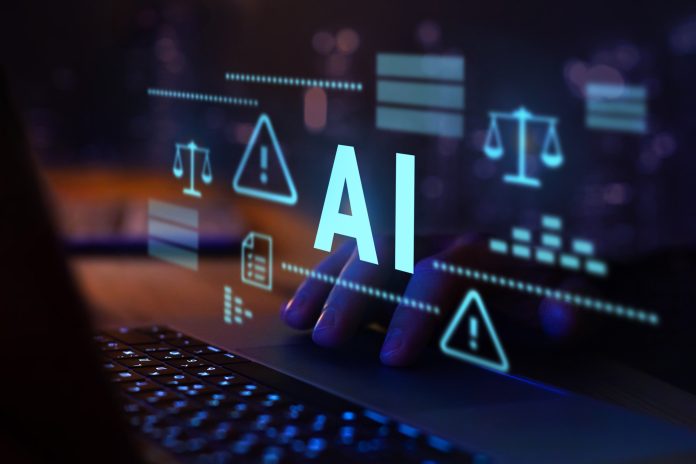In an effort to respond to the rapid advancements in artificial intelligence and the mounting concerns among content creators, the UK government released a set of proposals in December 2024 aimed at reshaping how copyright law applies to AI development. For copyright lawyers, this marks a pivotal moment – a potential reshaping of long-standing legal principles in the face of emerging technology.
At the core of these proposals lies a legal balancing act: how to foster innovation in AI while protecting the rights of creators whose works underpin the datasets that power these technologies.
Learning from the EU’s Approach…with a Twist
The UK seems to be drawing inspiration from the European Union’s earlier attempts to legislate in this area. While the EU’s framework has faced criticism for its lack of clarity and inconsistent enforcement across member states, the UK government is aiming for a more transparent and structured approach. Copyright lawyers have taken note of this shift, particularly the government’s stated goal of reducing uncertainty for both rights holders and AI developers.
Legal professionals in the copyright field are especially attentive to how these proposals will translate into enforceable rights and obligations. Although the EU’s legislation provided a foundational starting point, many lawyers found it left too much open to interpretation. The UK, however, is attempting to provide greater clarity—though not without controversy.
The Controversial Copyright Exemption and Opt-Out Model
Perhaps the most contentious element of the UK proposal is the introduction of a copyright exemption for AI developers. This would allow developers to mine and use copyrighted material for training purposes, as long as the content is not explicitly “opted out” by the rights holder. The proposal also introduces a new rights reservation mechanism, where copyright holders must actively opt out if they do not want their works used in this way.
From a copyright lawyer’s perspective, this opt-out system presents numerous legal and practical challenges. Unlike traditional copyright enforcement, which is based on exclusive rights and requires prior licensing or permission, this model effectively reverses the burden—placing the onus on creators to proactively protect their work.
Many lawyers view this as a significant shift in copyright norms. The principle of requiring explicit permission before use is central to most copyright regimes. By reversing this, the UK risks creating a more permissive environment for AI developers, potentially at the expense of authors, musicians, and visual artists.
Legal Concerns from the Creative Sector
Over 1,000 musicians—including high-profile names such as Annie Lennox, Damon Albarn, and Kate Bush—have publicly criticised the proposed changes. Their recent protest, in the form of a “silent” album, is both a symbolic and strategic legal statement. It reflects growing dissatisfaction with what many see as a weakening of creator protections in favour of technological expedience.
Copyright lawyers aligned with the creative industries have echoed these concerns. Legally, the shift from an “opt-in” to an “opt-out” system raises significant questions about consent, fairness, and enforceability—particularly in the sprawling, global digital landscape where unauthorised use is already difficult to monitor. For individual creators, many of whom lack the legal resources to track the use of their work at scale, these proposals represent a troubling dilution of their legal rights.
Notable industry figures such as Imogen Heap, Yusuf (Cat Stevens), Riz Ahmed, and Hans Zimmer have also supported the protest. For copyright lawyers, their involvement serves as a powerful signal of growing discontent within the artist community—and the likelihood that these proposals, if enacted, will be vigorously challenged both in the public sphere and potentially in the courts.
Legal Uncertainty and Future Litigation
One of the most immediate concerns for copyright lawyers is the ambiguity surrounding implementation. While the government has promised greater “certainty and transparency,” the practical mechanisms for opting out remain unclear. Will rights holders need to register with a centralised system? How often will they need to update their preferences? Will AI developers be legally required to check these databases before using content?
These unanswered questions create legal grey areas that are ripe for dispute. Copyright lawyers anticipate an increase in litigation should the proposals be implemented as drafted—particularly regarding unauthorised use, fair dealing exceptions, and the definition of “training data” versus “output.”
There are also broader implications for how UK copyright law aligns with international frameworks. The UK’s departure from the EU gives it legislative flexibility, but diverging too far could isolate the UK in global negotiations on AI and intellectual property standards. For IP lawyers working across jurisdictions, this presents both strategic complexity and opportunity.
The Role of Copyright Lawyers in Shaping the Debate
As the proposals move through consultation and potential legislation, copyright lawyers are likely to play a central role—advising stakeholders, shaping industry responses, and litigating the rules once in force. Whether representing artists, developers, or collecting societies, lawyers in this area will need to navigate a rapidly evolving legal frontier.
This moment also provides an opportunity for the legal profession to advocate for more balanced frameworks. Many in the IP community are calling for hybrid models that require AI companies to licence training data by default, with exemptions only under narrowly defined circumstances—essentially restoring the principle that creators must give consent before their work is exploited.
Looking Ahead
The intersection of copyright and artificial intelligence is one of the defining legal issues of our time. As the UK grapples with how to regulate this space, copyright lawyers will be essential in shaping what comes next. Whether the proposals become law remains to be seen, but one thing is certain: the future of AI and copyright will not be decided without intense legal scrutiny and debate.
For now, the legal landscape remains uncertain—but for copyright lawyers, the challenge has only just begun.

